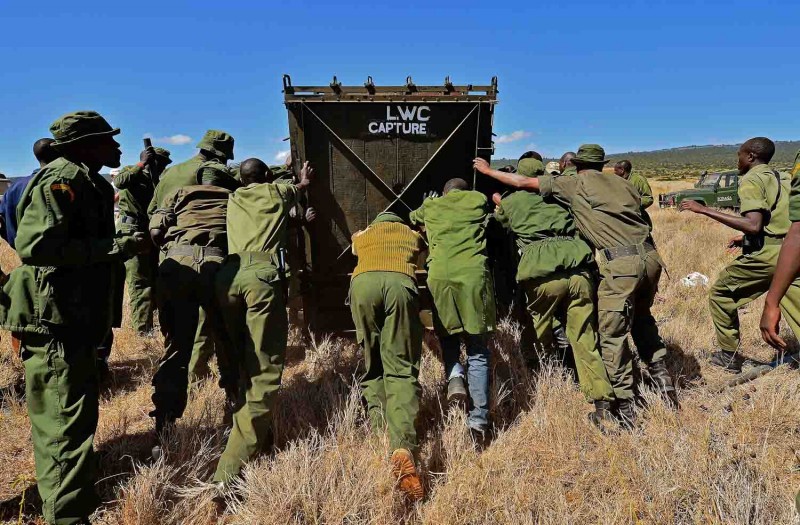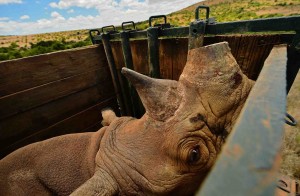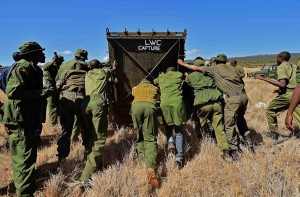Rhino relocation program, Borana Ranch, Kenya…
We are passionate about wildlife conservation – all around the world. Perhaps nowhere in the world does wildlife hang in the balance more than in East Africa, as we see rapid population increases competing with endangered species for critical habitat. Our friends and colleagues in Kenya are on the front lines and leading dramatic efforts to save endangered rhino and critical elephant corridors.
The story of the endangered rhino is particularly dramatic. The recent demand for rhino horn and resurgence in poaching has reached catastrophic levels. In South Africa 650 rhino have been slaughtered this year alone. In proportion to its population, Kenya has lost even more.
The market price of rhino horn now rivals gold for value (approximately $65,000 a kilo) and it is estimated that the trade is worth over $17 billion a year. In the Far East, rhino horn is sold throughout Asia as traditional medicine. And we know that the illegal trade in rhino horn is fueling terrorist organizations, directly linked to the violence of al-Shabab. The level of violence and slaughter has reached biblical proportions.
As a result, the pressure has mounted to extraordinary levels on both the national and private sectors involved with protecting this species. As the threat of poaching increases and becomes ever more sophisticated, so too has the determination and resources needed to protect rhino, as has the danger and the cost.
This past summer our friends and colleagues at the Borana Conservancy launched an intensive effort to re-introduce 21 black rhino to the property, opening up tens of thousands of acres of critical habitat. The costs associated with protecting these extraordinary animals are enormous, the stress almost incapacitating. Borana rangers have gone through rigorous training and the team has invested in extensive security systems to help keep these precious animals alive. As part of the relocation process, the team goes so far as to remove the rhino’s horn (to hopefully remove the incentive for slaughter.) Each night the team goes on high alert – and dreads the sound of gunshots.
We applaud the efforts of our friends at Borana and encourage you to get over there and see these incredible creatures. 40% of Kenya’s GDP is derived from tourism — it is their heritage and their identity. Wildlife supports the economy of Kenya, and we are proud to be a small part of the effort to support it back. We encourage you to learn more about Borana and their conservation efforts. Borana owner Michael Dyer will be visiting the US in January, as we host him for a series of presentations and receptions – we will invite you to come meet Michael and learn about this incredible program.



